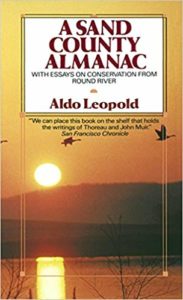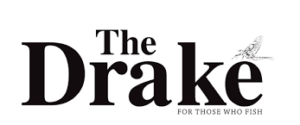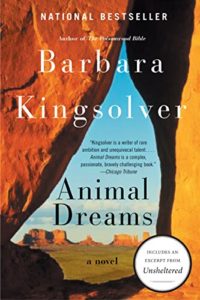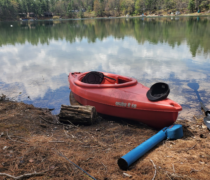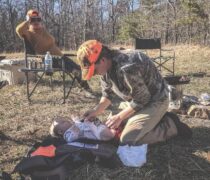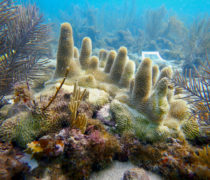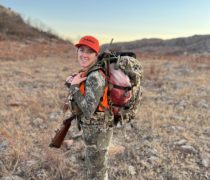Artemis Winter Reading List
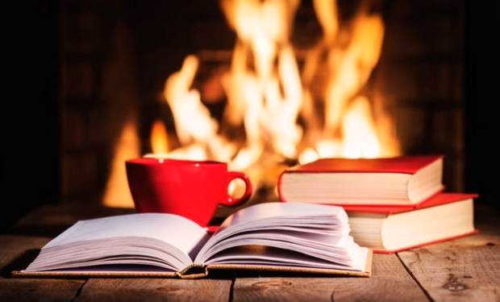
Tsundoku is a Japanese word that means acquiring reading materials but letting them pile up in one’s home without reading them. I find this happens to me throughout the summer and the fall. I look forward to winter, as the nights lengthen and the temperature drops, as an opportunity to catch up on my reading list. For inspiration on your own reading list, here are some favorites from the Artemis team. Many of these are books that have impacted our sporting ethics, our understanding of conservation, our connection to the natural world, and our deep, deep commitment to nature and wildlife. From the classics to some new voices, poetry to fiction, there is something for everyone. Enjoy!
Beyond Fair Chase, by Jim Posewitz. 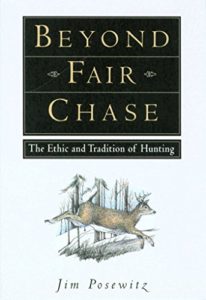 Beyond Fair Chase is for anyone concerned about the future of hunting. In simple but powerful text, it describes the ethical way to hunt, from preparation to shooting to care after the shot. Never before have so many issues been linked together in an ethical context.
Beyond Fair Chase is for anyone concerned about the future of hunting. In simple but powerful text, it describes the ethical way to hunt, from preparation to shooting to care after the shot. Never before have so many issues been linked together in an ethical context.
“This book was given to me in my Hunter Education class (at age 12) and reading it was a requirement for the class. To this day, I still question the ethics of each shot I take based on the rules of ‘Fair Chase’,” Rachel Buswell, Montana Artemis Ambassador.
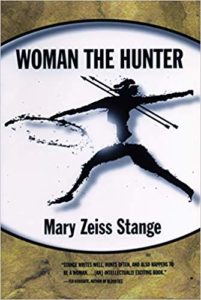 Woman the Hunter, by Mary Zeiss Stange. Woman the Hunter juxtaposes unsettlingly beautiful accounts of the author’s own experiences hunting deer, antelope, and elk with an argument that builds on the work of thinkers from Aldo Leopold to Clarissa Pinkola Estes. Exploring how women and men relate to nature and violence, Mary Zeiss Stange demonstrates how false assumptions about women and about hunting permeate contemporary thought. Her book is a profound critique of our society’s evasion of issues that make us uncomfortable, and it culminates in a surprising claim: that only by appreciating the value of hunting can we come to understand what it means to be human. An Artemis Sportswomen’s favorite read!
Woman the Hunter, by Mary Zeiss Stange. Woman the Hunter juxtaposes unsettlingly beautiful accounts of the author’s own experiences hunting deer, antelope, and elk with an argument that builds on the work of thinkers from Aldo Leopold to Clarissa Pinkola Estes. Exploring how women and men relate to nature and violence, Mary Zeiss Stange demonstrates how false assumptions about women and about hunting permeate contemporary thought. Her book is a profound critique of our society’s evasion of issues that make us uncomfortable, and it culminates in a surprising claim: that only by appreciating the value of hunting can we come to understand what it means to be human. An Artemis Sportswomen’s favorite read!
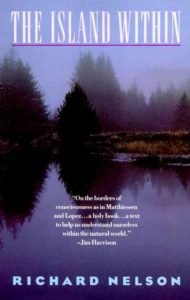 The Island Within, by Richard Nelson. Here is Nelson’s luminously wise account of his exploration of an unnamed island in the Pacific Northwest. This book revises our own relationship with nature, allowing us to observe it and also to participate in it with reverence and a sense of wonder.
The Island Within, by Richard Nelson. Here is Nelson’s luminously wise account of his exploration of an unnamed island in the Pacific Northwest. This book revises our own relationship with nature, allowing us to observe it and also to participate in it with reverence and a sense of wonder.
“I read it 25 years ago. Parts of it are still with me.” Tracy Stone-Manning, NWF Associate VP of Public Lands.
A Sand County Almanac, by Aldo Leopold. These astonishing portraits of the natural world explore the breathtaking diversity of the unspoiled American landscape—the mountains and the prairies, the deserts and the coastlines. Conjuring up one extraordinary vision after another, Aldo Leopold takes readers with him on the road and through the seasons on a fantastic tour of our priceless natural resources, explaining the destructive effects humankind has had on the land and issuing a bold challenge to protect the world we love.
“Like a fine wine, or perhaps the elk quarters hanging in the garage that you haven’t yet found the time to butcher – A Sand County Almanac gets better with age. Aldo Leopold’s writing is both informative and lyrical and will appeal to anyone interested in conservation, wildlife and how to live a purpose-driven life in harmony with the land.” Becca Aceto, Idaho Artemis Ambassador. Also recommended by Andrew Black, Public Lands Field Director.
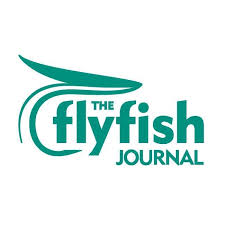 Kara Armano, Artemis Co-Founder and Advisory Council member recommends The Flyfish Journal and The Drake Magazine. “I read every issue of both titles cover to cover to not only enjoy the culture and community of fly fishing but to read up-to-date, relevant conservation articles about issues affecting fly fishing from numerous perspectives. The journalistic quality of these pieces highlights the issues and engages anglers to act due to the excellent prose associated with each piece.”
Kara Armano, Artemis Co-Founder and Advisory Council member recommends The Flyfish Journal and The Drake Magazine. “I read every issue of both titles cover to cover to not only enjoy the culture and community of fly fishing but to read up-to-date, relevant conservation articles about issues affecting fly fishing from numerous perspectives. The journalistic quality of these pieces highlights the issues and engages anglers to act due to the excellent prose associated with each piece.”
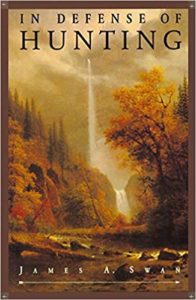 In Defense of Hunting, by James A. Swan. An acclaimed nature writer and environmentalist delivers an eloquent and provocative pro-hunting exploration of the primal impulse to hunt and its endangered value in modern society.
In Defense of Hunting, by James A. Swan. An acclaimed nature writer and environmentalist delivers an eloquent and provocative pro-hunting exploration of the primal impulse to hunt and its endangered value in modern society.
“Lots of good nuggets about the true ethics, traditions and reasons humans have always hunted, and why we still should,” Aaron Kindle, Senior Manager, Western Sporting Campaigns and Arte-man.
Braiding Sweetgras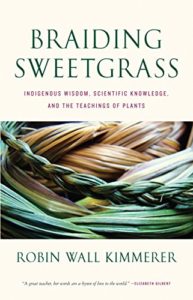 s, by Robin Wall Kimmerer. Drawing on her life as an indigenous scientist, and as a woman, Kimmerer shows how other living beings—asters and goldenrod, strawberries and squash, salamanders, algae, and sweetgrass—offer us gifts and lessons, even if we’ve forgotten how to hear their voices. In reflections that range from the creation of Turtle Island to the forces that threaten its flourishing today, she circles toward a central argument: that the awakening of ecological consciousness requires the acknowledgment and celebration of our reciprocal relationship with the rest of the living world. For only when we can hear the languages of other beings will we be capable of understanding the generosity of the earth, and learn to give our own gifts in return. An Artemis Sportswomen’s favorite read.
s, by Robin Wall Kimmerer. Drawing on her life as an indigenous scientist, and as a woman, Kimmerer shows how other living beings—asters and goldenrod, strawberries and squash, salamanders, algae, and sweetgrass—offer us gifts and lessons, even if we’ve forgotten how to hear their voices. In reflections that range from the creation of Turtle Island to the forces that threaten its flourishing today, she circles toward a central argument: that the awakening of ecological consciousness requires the acknowledgment and celebration of our reciprocal relationship with the rest of the living world. For only when we can hear the languages of other beings will we be capable of understanding the generosity of the earth, and learn to give our own gifts in return. An Artemis Sportswomen’s favorite read.
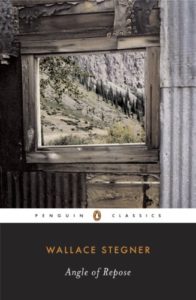 The Angle of Repose, by Wallace Stegner. Confined to a wheelchair, retired historian Lyman Ward sets out to write his grandparents’ remarkable story, chronicling their days spent carving civilization into the surface of America’s western frontier. But his research reveals even more about his own life than he’s willing to admit. What emerges is an enthralling portrait of four generations in the life of an American family.
The Angle of Repose, by Wallace Stegner. Confined to a wheelchair, retired historian Lyman Ward sets out to write his grandparents’ remarkable story, chronicling their days spent carving civilization into the surface of America’s western frontier. But his research reveals even more about his own life than he’s willing to admit. What emerges is an enthralling portrait of four generations in the life of an American family.
Recommended by TJ Brown, Public Lands Communications Contractor.
Animal Dreams, by Barbara Kingsolver. Animal Dreams is a passionate and complex novel about love, forgiveness, and one woman’s struggle to find her place in the world. At the end of her rope, Codi Noline returns to her Arizona home to face her ailing father, with whom she has a difficult, distant relationship. There she meets handsome Apache trainman Loyd Peregrina, who tells her, “If you want sweet dreams, you’ve got to live a sweet life.”
“Among many other issues, it digs into conservation and ethics issues surrounding communities that have relied on the lands for hundreds of years, and the conflicts that arise when a local mining company contaminates that land. It’s fantastic!!” Mary Greene, Public Lands Counsel. Kingsolver’s, Flight Behavior, is also a wonderful story about butterfly migration in a small Tennessee town.
 Devotions, by Mary Oliver. Carefully curated, these 200 plus poems feature Oliver’s work from her very first book of poetry, No Voyage and Other Poems, published in 1963 at the age of 28, through her most recent collection, Felicity, published in 2015. This timeless volume, arranged by Oliver herself, showcases the beloved poet at her edifying best. Within these pages, she provides us with an extraordinary and invaluable collection of her passionate, perceptive, and much-treasured observations of the natural world.
Devotions, by Mary Oliver. Carefully curated, these 200 plus poems feature Oliver’s work from her very first book of poetry, No Voyage and Other Poems, published in 1963 at the age of 28, through her most recent collection, Felicity, published in 2015. This timeless volume, arranged by Oliver herself, showcases the beloved poet at her edifying best. Within these pages, she provides us with an extraordinary and invaluable collection of her passionate, perceptive, and much-treasured observations of the natural world.
“I have heard said that the gift of poetry is that it puts into words what your soul feels. Mary Oliver puts into words what my soul feels when I’m in the natural world and pay attention to what it is saying,” Marcia Brownlee, Artemis Program Manager.
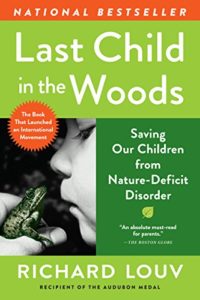 Last Child in the Woods, by Richard Louv. In his landmark work Last Child in the Woods, Richard Louv brought together cutting-edge studies that pointed to direct exposure to nature as essential for a child’s healthy physical and emotional development. Now this new edition updates the growing body of evidence linking the lack of nature in children’s lives and the rise in obesity, attention disorders, and depression. Louv’s message has galvanized an international back-to-nature campaign to “Leave No Child Inside.” His book will change the way you think about our future and the future of our children.
Last Child in the Woods, by Richard Louv. In his landmark work Last Child in the Woods, Richard Louv brought together cutting-edge studies that pointed to direct exposure to nature as essential for a child’s healthy physical and emotional development. Now this new edition updates the growing body of evidence linking the lack of nature in children’s lives and the rise in obesity, attention disorders, and depression. Louv’s message has galvanized an international back-to-nature campaign to “Leave No Child Inside.” His book will change the way you think about our future and the future of our children.
“This author goes into the disconnect of younger generations and our natural world. He explores children’s value of nature in a variety of settings,” Kyla West, Washington Artemis Ambassador.
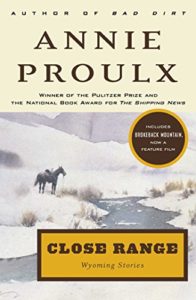 Annie Proulx. We recommend starting with The Wyoming Stories, which includes, Close Range, Bad Dirt, and Fine Just the Way It Is. Annie Proulx’s masterful language and fierce love of Wyoming are evident in these breathtaking tales of loneliness, quick violence, and the wrong kinds of love. Each of the stunning portraits in Close Range reveals characters fiercely wrought with precision and grace.
Annie Proulx. We recommend starting with The Wyoming Stories, which includes, Close Range, Bad Dirt, and Fine Just the Way It Is. Annie Proulx’s masterful language and fierce love of Wyoming are evident in these breathtaking tales of loneliness, quick violence, and the wrong kinds of love. Each of the stunning portraits in Close Range reveals characters fiercely wrought with precision and grace.
I’m partial to Annie Proulx (Shipping News, Wyoming Stories). I’m currently reading ‘Barkskins’, which is a thick but rich novel about the relationship between European colonists and the ‘frontier’, as well as the treatment of indigenous peoples and the land. Lots in there and good for long winters nights.” Brian Kurzel, Regional Executive Director, NWF Rocky Mountian Regional Center.
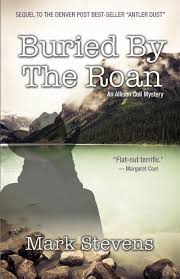 The Allison Coil Mystery Series, by Mark Stevens The spark for Buried by the Roan (Book 2 in the Allison Coil Mystery Series) is a dead hunter on the shore of Oyster Lake, deep in the Flat Tops Wilderness. Josh Keating’s demise could be a case of a hunter drinking too much and stumbling late at night. Or it could be something much worse. Plenty of other strange things are going on to make hunting guide Allison Coil think the death is no accident. Someone is lurking around, leaving odd notes and maps. Hunters and guides are turning up violently ill from drinking the Flat Tops water. Four of the buffalo on Keating’s ranch are slaughtered. And there’s word that Keating and his neighbor were tangled up in a property dispute triggered by a centuries-old Colorado law known as adverse possession.
The Allison Coil Mystery Series, by Mark Stevens The spark for Buried by the Roan (Book 2 in the Allison Coil Mystery Series) is a dead hunter on the shore of Oyster Lake, deep in the Flat Tops Wilderness. Josh Keating’s demise could be a case of a hunter drinking too much and stumbling late at night. Or it could be something much worse. Plenty of other strange things are going on to make hunting guide Allison Coil think the death is no accident. Someone is lurking around, leaving odd notes and maps. Hunters and guides are turning up violently ill from drinking the Flat Tops water. Four of the buffalo on Keating’s ranch are slaughtered. And there’s word that Keating and his neighbor were tangled up in a property dispute triggered by a centuries-old Colorado law known as adverse possession.
The lead character is a female hunting guide who works in the Flat Tops Wilderness Area (she’s inspired by a real Colorado guide). Each book tackles a different “newsy” issue. “Buried By the Roan” is all about fracking. They all are fun romps.” Mary Jo Brooks, Manger of Public Lands Communications.
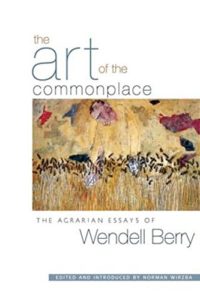 The Art of the Commonplace, by Wendell Berry. The Art of the Commonplace gathers twenty essays by Wendell Berry that offer an agrarian alternative to our dominant urban culture. Grouped around five themes—an agrarian critique of culture, agrarian fundamentals, agrarian economics, agrarian religion, and geobiography—these essays promote a clearly defined and compelling vision important to all people dissatisfied with the stress, anxiety, disease, and destructiveness of contemporary American culture.
The Art of the Commonplace, by Wendell Berry. The Art of the Commonplace gathers twenty essays by Wendell Berry that offer an agrarian alternative to our dominant urban culture. Grouped around five themes—an agrarian critique of culture, agrarian fundamentals, agrarian economics, agrarian religion, and geobiography—these essays promote a clearly defined and compelling vision important to all people dissatisfied with the stress, anxiety, disease, and destructiveness of contemporary American culture.
Recommended by Andrew Black, Public Lands Field Director.
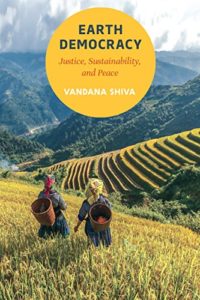 Earth Democracy: Justice, Sustainability and Peace, by Vandana Shiva. World-renowned environmental activist and physicist Vandana Shiva calls for a radical shift in the values that govern democracies, condemning the role that unrestricted capitalism has played in the destruction of environments and livelihoods. She explores the issues she helped bring to international attention—genetic food engineering, culture theft, and natural resource privatization—uncovering their links to the rising tide of fundamentalism, violence against women, and planetary death.
Earth Democracy: Justice, Sustainability and Peace, by Vandana Shiva. World-renowned environmental activist and physicist Vandana Shiva calls for a radical shift in the values that govern democracies, condemning the role that unrestricted capitalism has played in the destruction of environments and livelihoods. She explores the issues she helped bring to international attention—genetic food engineering, culture theft, and natural resource privatization—uncovering their links to the rising tide of fundamentalism, violence against women, and planetary death.
“When it comes to understanding intersectionality of development policy, environmental policy and justice I would say anything by Vandana Shiva,” Meg Morris, Public Lands Digital Campaigns Manager.
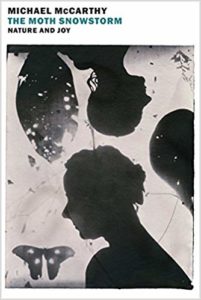 The Moth Snowstorm: Nature and Joy, by Michael McCarthy. Arguing that neither sustainable development nor ecosystem services have provided adequate defense against pollution, habitat destruction, species degradation, and climate change, McCarthy asks us to consider nature as an intrinsic good and an emotional and spiritual resource, capable of inspiring joy, wonder, and even love. An award-winning environmental journalist, McCarthy presents a clear, well-documented picture of what he calls “the great thinning” around the world, while interweaving the story of his own early discovery of the wilderness and a childhood saved by nature. Drawing on the truths of poets, the studies of scientists, and the author’s long experience in the field, The Moth Snowstorm is part elegy, part ode, and part argument, resulting in a passionate call to action.
The Moth Snowstorm: Nature and Joy, by Michael McCarthy. Arguing that neither sustainable development nor ecosystem services have provided adequate defense against pollution, habitat destruction, species degradation, and climate change, McCarthy asks us to consider nature as an intrinsic good and an emotional and spiritual resource, capable of inspiring joy, wonder, and even love. An award-winning environmental journalist, McCarthy presents a clear, well-documented picture of what he calls “the great thinning” around the world, while interweaving the story of his own early discovery of the wilderness and a childhood saved by nature. Drawing on the truths of poets, the studies of scientists, and the author’s long experience in the field, The Moth Snowstorm is part elegy, part ode, and part argument, resulting in a passionate call to action.
What good reads have influenced you as an angler, hunter, or conservationist?? We are always looking to add to the stack! artemis@nwf.org

